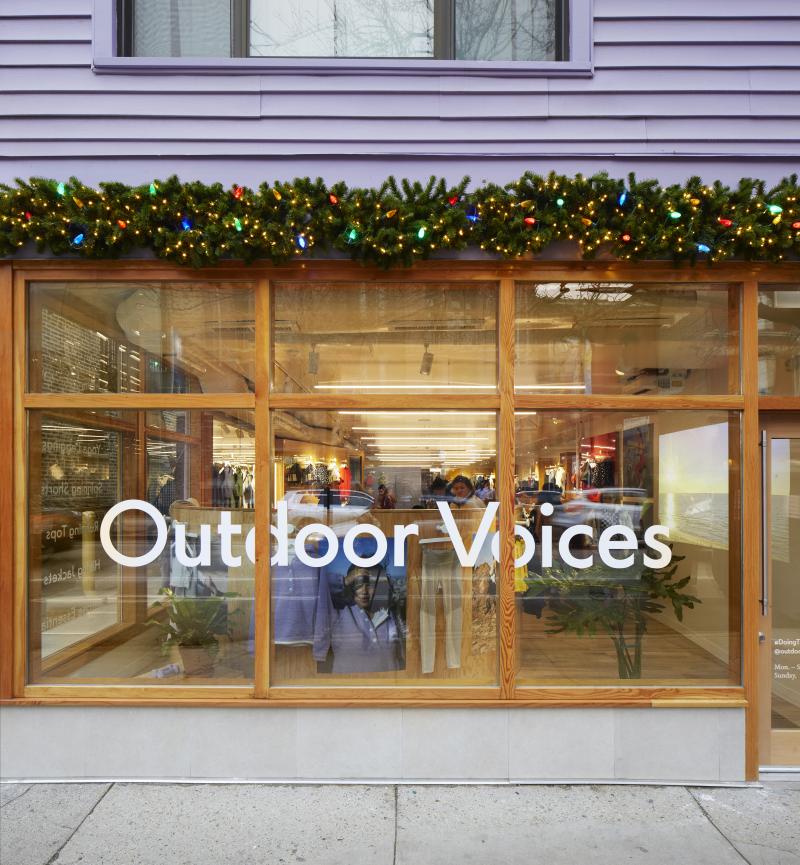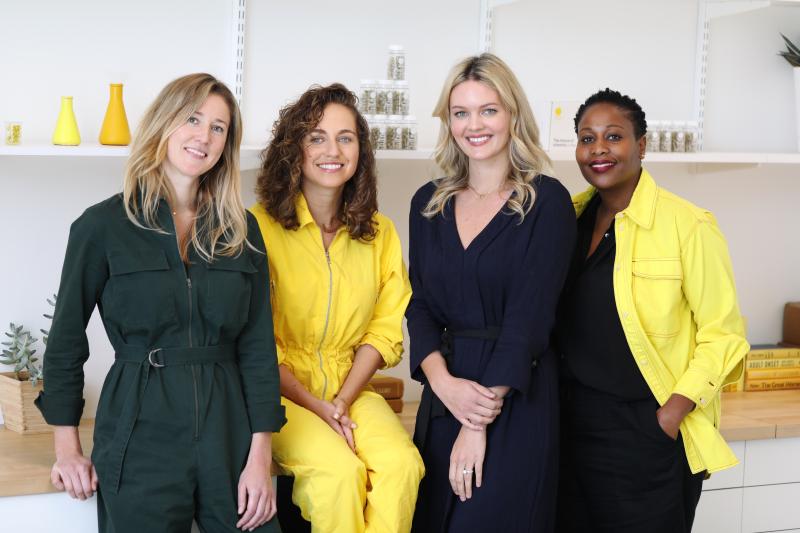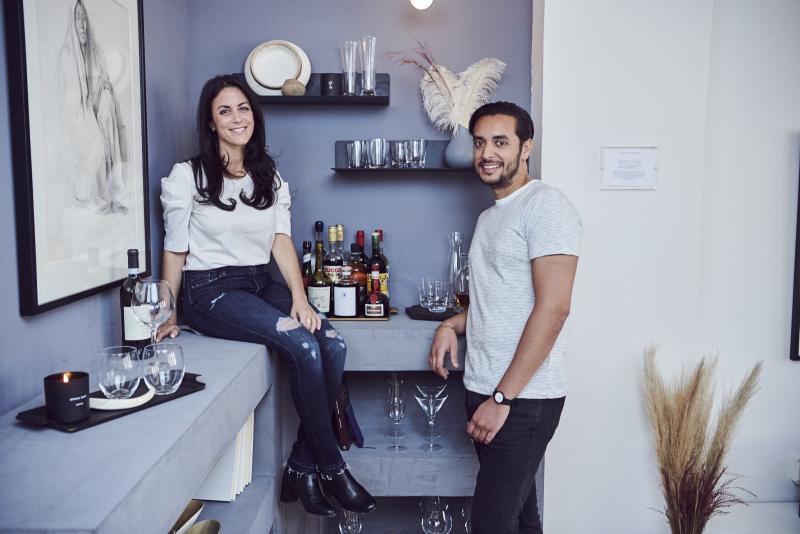The Hot Retail Startups in 2020
Retail is undergoing a transformation. E-commerce players are perfecting fulfillment, while physical stores are turning to customer-centric models and experiential retail. This new path for retail is often being developed by emerging players in the market.
Startups are defining the retail industry. They are brining unique business models and emerging technologies to the landscape, setting out to embrace modern consumers' desires rather than trying to reinvent themselves to fit what today and tomorrow’s shoppers want.
While there are countless retail startups entering the competitive retail scene that deserve notice for being unafraid to fail, for this feature RIS only considered retailers that were six years old or younger. Here we highlight how these retail trendsetters are making an impact on the industry through their distinctive business models and/or original use of technology.
Below is a quick look at the retail startups that are making their mark on the industry and disrupting their respective segments. Click here to recall last year's "10 Hot Retail Startups."
BULLETIN
Since launching in 2015, curated wholesale marketplace Bulletin has helped hundreds of brands access physical retail space for the first time. In addition to helping emerging brands grow their physical footprint, Bulletin now helps premium retailers access vetted, fool-proof products they can’t find anywhere else.
By running five of its own stores across New York City, Bulletin says it has seen the impact of hosting brands and products its customers can’t find anywhere else. All of its stores run on consignment, helping Bulletin test products before making a huge investment in inventory. It also hosts monthly programming across its spaces to support small businesses, from fireside chats to fundraising panels and brand-building workshops.
Founders Ali Kriegsman and Alana Branston started Bulletin, which began as an online magazine from which readers could shop in 2015, according to Fast Company. From there, it morphed into a bona fide flea market.
Bulletin Spotlight
Founded: 2015
Headquarters: New York, NY
Funding: $9.2 million, according to Crunchbase.
Interesting fact: The company was founded by two women, has an entirely female team, and only displays products from female-led businesses
To-date, Bulletin has met brand demand by opening its own physical retail stores and is now evolving its service to help brands increase their distribution across retail stores nationwide. The startup is working to refine its custom assortment-as-a-service program, which leverages data science and data-driven insights to help retailers make smarter buying decisions, such as various data inputs like the store's historical sales data, social media data and current best-sellers.
"In testing this marketplace model last year, we were absolutely blown away by the early traction and demand from both retailers and brands,” said CEO Alana Branston. “It's been really gratifying to see how this new product has increased retailers' sell-through while giving brands the brick-and-mortar exposure they need to engage their existing direct-to-consumercustomers, acquire new ones and learn about product performance across various stores and environments."
Burrow
Stephen Kuhl and Kabeer Chopra teamed up while pursuing their MBA at The Wharton School at the University of Pennsylvania to start Burrow, a direct-to-consumer startup that makes clever furniture for modern life. By delivering couches directly to consumers, the retailer is able to remove markups and over 70% of standard shipping costs. Better yet, each piece of Burrow furniture is handcrafted from sturdy, sustainably-sourced hardwood and scratch- and stain-resistant, non-toxic fabrics.
Burrow Spotlight
Headquarters: New York, NY
Founded: 2016
Funding: $28.3M in funding over six rounds, according to Crunchbase
Interesting fact: By reverse engineering a high-end couch, Burrow designed a fully customizable sofa that is delivered within one week and takes minutes to set up
Stores: Two showrooms--New York and Chicago
In the spring of 2016, Kuhl and Chopra started with an initial round of funding from friends and family, raising $330,000, according to CNBC.
“We reverse-engineered a high-quality couch to ship in compact boxes that fit within the FedEx and UPS commercial weight guidelines,” Kuhl said. “Instead of having a couch that costs several hundred dollars to ship from the factory to the warehouse to the retail store to the customer,” he explained, they designed one that could ship anywhere in the U.S., straight from the factory, for less than $100.
Burrow officially launched its first sofa in April 2017. In 2018, Burrow opened a flagship showroom in NYC, was named one of the 10 most innovative retail brands by Fast Company, and its sofa was named one of the 50 best inventions of the year by TIME.
The startup is changing the way people buy sofas and couches online and redefining customer profiles through a headless commerce approach. Using creative content marketing tactics including photography, video, and retail events, Burrow is crafting a brand that stands out in a sea of retail furniture sellers.
Camp
When it comes to experiential retail Camp is boldly defining the new look of children’s retail. Camp’s first location on 5th Ave in New York City, which opened at the end of 2018, boasts rotating themed experiences such as its December Toy Lab Camp, an immersive retail experience where families can test and shop for the best toys of the season. The Instagramable store isn’t just selling toys in a pretty backdrop — it offers workshops and interactive areas for kids to play.
Camp Spotlight
Founded: 2018
Customers: Camp calls itself a “Family Experience Store”
Stores: Five
Interesting fact: Camp hosts Date Nights; for $60 parents can leave the kids at the store
One of its latest activities is Studio Time, where children can design their own crafting adventure with one of Camp’s signature collection of ceramics or woodworks. The retailer also has an innovative membership program providing Camp members free activities, coffee, gift wrap, and more.
Camp lists five locations across the U.S. on its website now and was founded by Ben Kaufman, who currently serves as both Camp’s CEO and as the chief marketing officer of online media company Buzzfeed. According to Kaufman’s LinkedIn profile, he began working on Camp in June 2018 and Crunchbase reports Camp filed paperwork with the SEC in June 2019 indicating it’s raised $10.5 million out of a targeted $11 million in equity-only funding. The company received its first capital commitment in early April and raised from five investors.
Farmstead
Online grocer Farmstead uses artificial intelligence (AI) technology to reinvent the grocery buying experience and rewire how food moves across the country to significantly reduce food waste. Co-founders Pradeep Elankumaran and Kevin Li, who both formerly worked at Yahoo, founded the company in 2016 in the competitive San Francisco Bay Area and announced earlier this year it would enter its first expansion market, the Carolinas, after partnering with Southeast grocery company Alex Lee, the parent company of grocer Lowes Foods and grocery distributor Merchants Distributors (MDI).
According to Elankumaran, Farmstead is the first online grocer to offer fresh, high-quality groceries, delivered for free, at better prices than local supermarkets.
Farmstead Spotlight
Headquarters: San Francisco, CA
Founded: 2016
Customers: Thousands in the Bay Area, with national expansion to come in 2020
Growth: Double digits, quarter over quarter since founding
“Farmstead’s growth strategy is based on the concept of microhubs – delivery-centric warehouses unattached to existing stores that serve a wide radius – to hone efficiency and reduce costs,” Elankumaran tells RIS.
A Farmstead microhub can be constructed in under eight weeks for just $100,000, and can serve a 50-mile delivery radius.
“These microhubs greatly ease entry into new geographies, reduce food waste by three-four times and help eliminate food deserts by making fast, inexpensive delivery available to a wider area,” he explains. “Most of all, they meet customers’ desire for perfect orders with no last minute stockouts, delivered free, with no other markups. With Farmstead, customers can get all of their groceries – high-quality local brands, national brands and fresh meats, dairy and produce – from one place.”
Milk Makeup
Makeup and skincare company Milk Makeup was born by the founders of Milk Studios, a full-service photography studio. Founded in 2015 by beauty and fashion editor Mazdack Rassi and cofounders Dianna Ruth, Georgie Greville and E! News correspondent Zanna Roberts Rassi, the brand was inspired by Milk, its cultural hub and community in NY and LA. All aspects of the product line are developed in-house at Milk Studios and the brand's products set themselves apart by being cruelty-free, paraben-free and 100% vegan. Milk Makeup products are all designed for brushless, one-handed application for the “girl on the go.”
Milk Makeup Spotlight
Headquarters: New York, NY
Founded: 2015, launched in 2016
Anthem: “Live Your Look”
Funding: Private equity firm Main Post Partners took a minority stake in Milk Makeup in 2017.
While the goods are sold on milkmakeup.com, shoppers can also find them in popular retail stores like Sephora and Urban Outfitters in iconic illuminated, white gondolas. The cult beauty brand launched in the UK earlier this year and has amassed a huge online following including 1.8 million followers on Instagram and almost 92,000 YouTube subscribers. The brand’s cannabis oil-infused Kush range is a best seller. When it wanted to launch a fully vegan volumizing mascara with fibers, beeswax was out, so the company turned to cannabis oil, which provides an additional conditioning benefit.
"Milk Makeup is about highlighting who you are, as opposed to covering you up,” said Milk co-founder and creative director Mazdack Rassi. “Milk redefines the discovery experience for consumers who love creativity and self-expression. They are the rebels, thinkers and makers who shape our vision and bring it to life.”
Neighborhood Goods
As traditional department stores struggle, Neighborhood Goods offers shoppers a modern alternative to the old department store model. While it was co-founded in 2017 by Matt Alexander and Mark Masinter, the retailer opened the doors to its inaugural store at Legacy West in Plano, TX, in 2018. In December of 2019 it opened its second location of the progressive department store, this time in New York City at the renowned Chelsea Market. Each location offers a different set of features and functions for its brands, ensuring a local, relevant experience for customers, rather than a one-size-fits-all approach adopted by many retailers.
Neighborhood Goods Spotlight
Headquarters: Dallas, TX
Founded: 2017
Funding: $27.55 million in funding across its Seed and Series A rounds
Stores: Two
Food & Drink: The NYC location’s restaurant, Tiny Feast, is a snack bar/cocktail bar slated to open in early 2020
The stores feature an ever-changing selection of brands and products, giving both startups and established brands a space to introduce their products to customers. This comes along with a community; the company sets out to bring people together to shop, eat (the stores feature Neighborhood Goods’ own restaurant and bar concepts, Prim & Proper and Tiny Feast) and learn in its physical spaces and through immersive editorial content. Neighborhood Goods’ New York City location, for example, features over 40 brands and hosts in-store event concepts, trunk shows and pop-ups with partner brands.
“Our approach to creating a more dignified retail experience is something, we feel, will be particularly well-suited to New York,” said Alexander, co-founder and CEO. “And, with this fantastic line-up of brands, near-daily events, and more, we cannot wait to begin building our local community in the city.”
The malleable retail concept has proven successful thus far, garnering $27.55 million in funding across its Seed and Series A rounds in the past year and a half, while growing its partnerships and accelerating its expansion plans.
Outdoor Voices
Outdoor Voices is an athleisure retail brand on a mission to get the world moving by building a community of recreational enthusiasts who believe that “doing things” —i.e. moving your body and having fun with friends—is the surest, most important way to a happy and healthy life.
Founder and CEO of Outdoor Voices, Ty Haney founded the company in 2013 and opened the first store in Austin in October 2014. Last month, Outdoor Voices opened its new Manhattan flagship store in the Flatiron District, marking its tenth store and second location in Manhattan. In addition to expanding its physical base, the company has picked up $64 million in funding, according to Crunchbase, and in early 2019 it appointed Pamela Catlett as president and COO, formerly the senior VP and group general manager of the Women’s and Youth Categories at Under Armour.
Outdoor Voices Spotlight
Headquarters: Austin, TX
Founded: 2013
Interesting fact: Incorporates sustainable elements in new builds, such as recycled rubber flooring
Stores: 10
Haney, a graduate of Parsons School of Design in NYC, grew up in Boulder, CO, where spending time outdoors is a natural part of life. Outdoor Voices believes in bringing play back into everyday life.
In July, the activewear brand launched The Recreationalist, a content marketing platform which includes curated content from product recommendations and playlists to city guides and profiles, via a blog and a zine.
The brand also focuses on sustainability by reducing its use of conventional fabrics in favor of more sustainable alternatives and by only using packaging that is both recycled and recyclable. All customer shipments arrive in 100% recycled paper envelopes or recyclable boxes and the company is piloting a program to replace poly bags (the plastics that protect clothing in-transit) with paper alternatives.
Ritual
Ritual is getting noticed in the vitamin and supplement industry for developing a science-first, reimagined multivitamin that delivers clean essential nutrients to women. The subscription-based vitamin company landed on LinkedIn’s list of “Top Startups 2019: The 50 hottest U.S. companies to work for now” and raised $25 million in Series B funding this year.
After becoming pregnant, Ritual founder Katerina Schneider inspected all of her products to eliminate questionable ingredients. But during her search for a clean prenatal multivitamin, she noticed that many brands contained potentially harmful colorants, hidden and misleading ingredients, and unproven dosages. So she set out to do something about it.
Ritual Spotlight
Headquarters: Culver City, CA
Founded: 2015
Customers: Over 1 million bottles sold
Interesting fact: Ritual’s female leadership includes COO Liz Reifsnyder, who previously led Business Development & Strategy at Dollar Shave Club.
Ritual’s scientists sifted through thousands of independent research studies to determine the nutrients included in its products. The team then selected forms of each nutrient backed by a significant body of research. Then, Ritual made key research studies that informed the team’s choices available on its website.
The company launched its first product, Essential For Women, in 2016, and, based on consumer feedback, released its second product, Essential Prenatal, in 2018. Ritual’s recent round of funding will be invested directly into product innovation and scientific research and development. It plans to formulate and launch essential vitamins that support women’s health at every stage—from young adulthood through menopause.
Notably, the female-first retailer is not only female-founded, but the majority of its board members and leadership team are women.
Snowe
Snowe sells practical luxury home goods, meaning its wares are meant for shoppers to live and use every day. The retailer is bridging the gap between mass-market and luxury retail to bring consumers sophisticated yet attainable products designed to be used every day and for every occasion.
The retailer partners with the top factories in the world to use the best materials and craftsmanship, such as bedding milled and hand finished in Italy, break-resistant Italian glass, and Limoges porcelain clay from France, fired at ultra-high temperatures to create durable dinnerware. While designing products to last is its own sustainability effort, the retailer also uses paper-based packing materials that are 100% recyclable.
Snowe Spotlight
Headquarters: New York, NY
Founded: 2015
Funding: Snowe is backed by top venture capitalists, leaders of some of the most cutting-edge brands and prestigious consumer products companies, according to LinkedIn
Stores: Two
The company was founded in 2015, when Rachel Cohen and Andrés Modak finished their MBA’s from The Wharton School of Business and moved to New York. When they set up their home together, they were “floored by the lack of essentials worth waking up to.” With a crew of designers and dreamers, they spent a year developing what you can’t live without, essentially high-quality home essentials.
Today the retailer has two stores, one in New York City’s Flatiron district and one in Southampton, NY, and sells across five categories: sleep, bathe, eat, drink, and scents.
“From the start, it was critical for us to build a destination for the home, with an array of products across the whole home, and not just be a direct-to-consumer bedding or tabletop brand,” said Cohen.



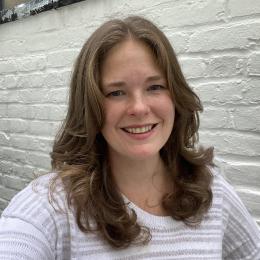
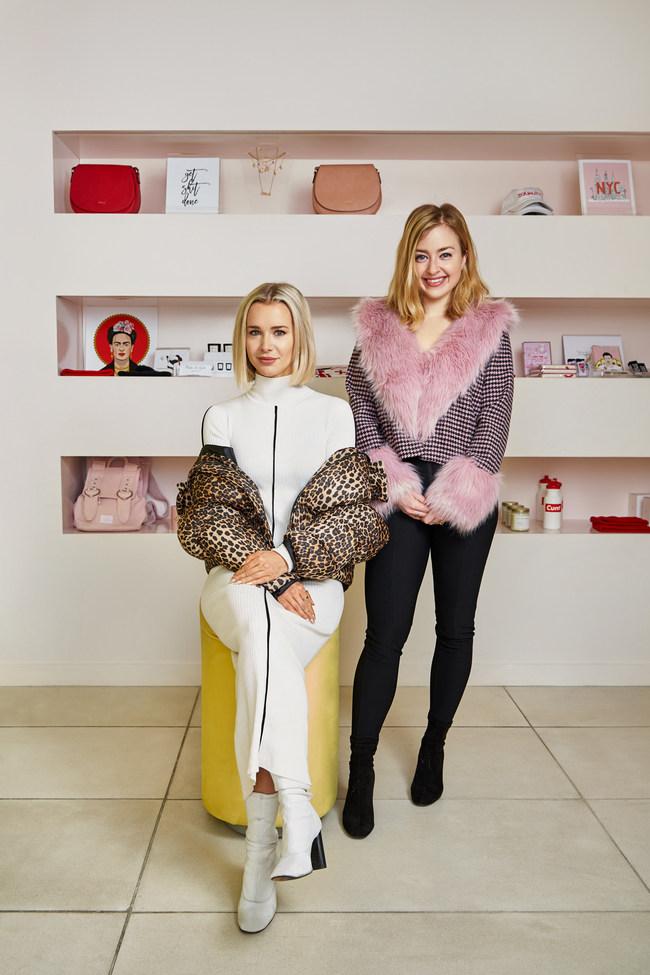
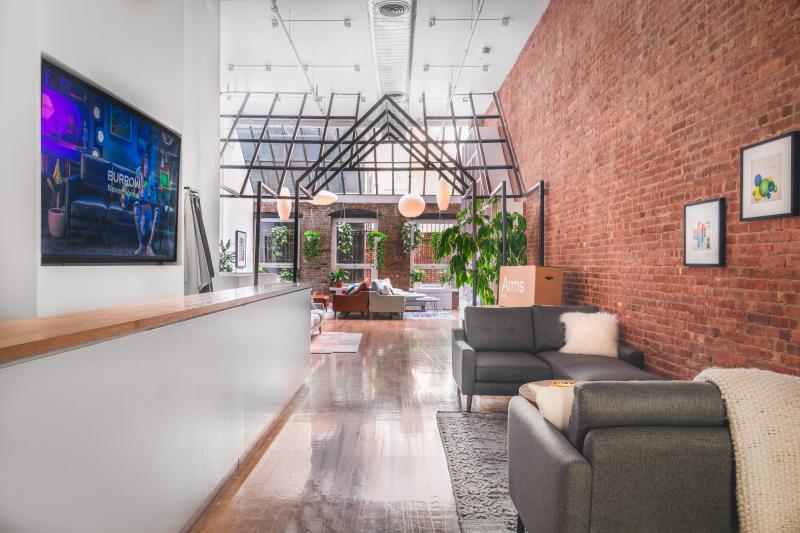
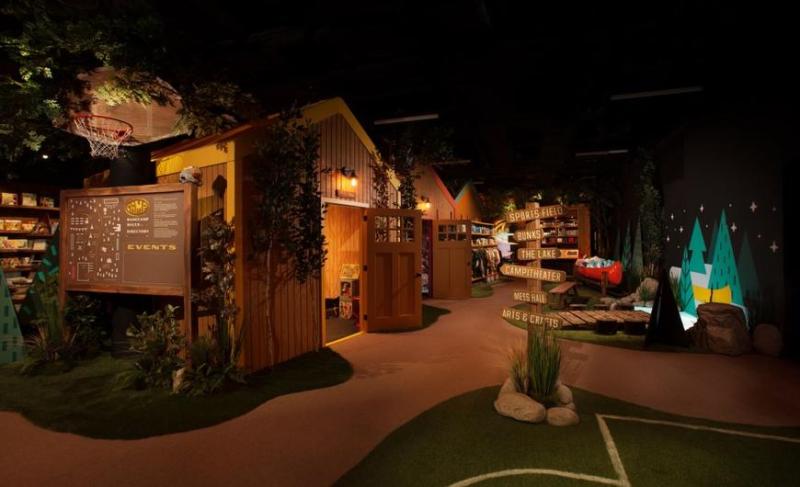
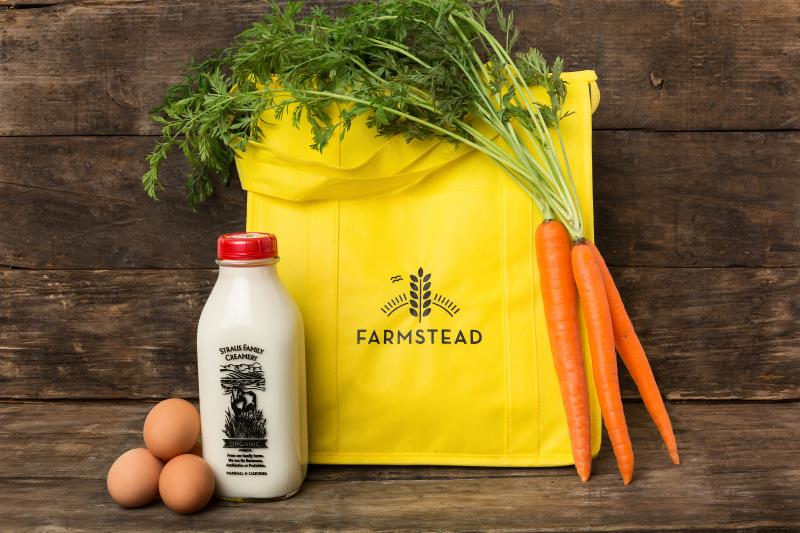
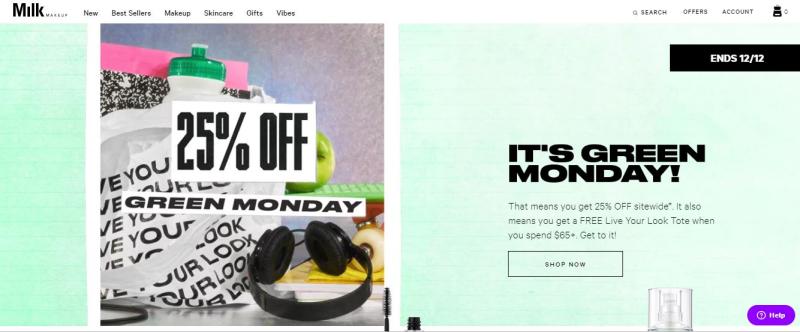
4489.jpg)
